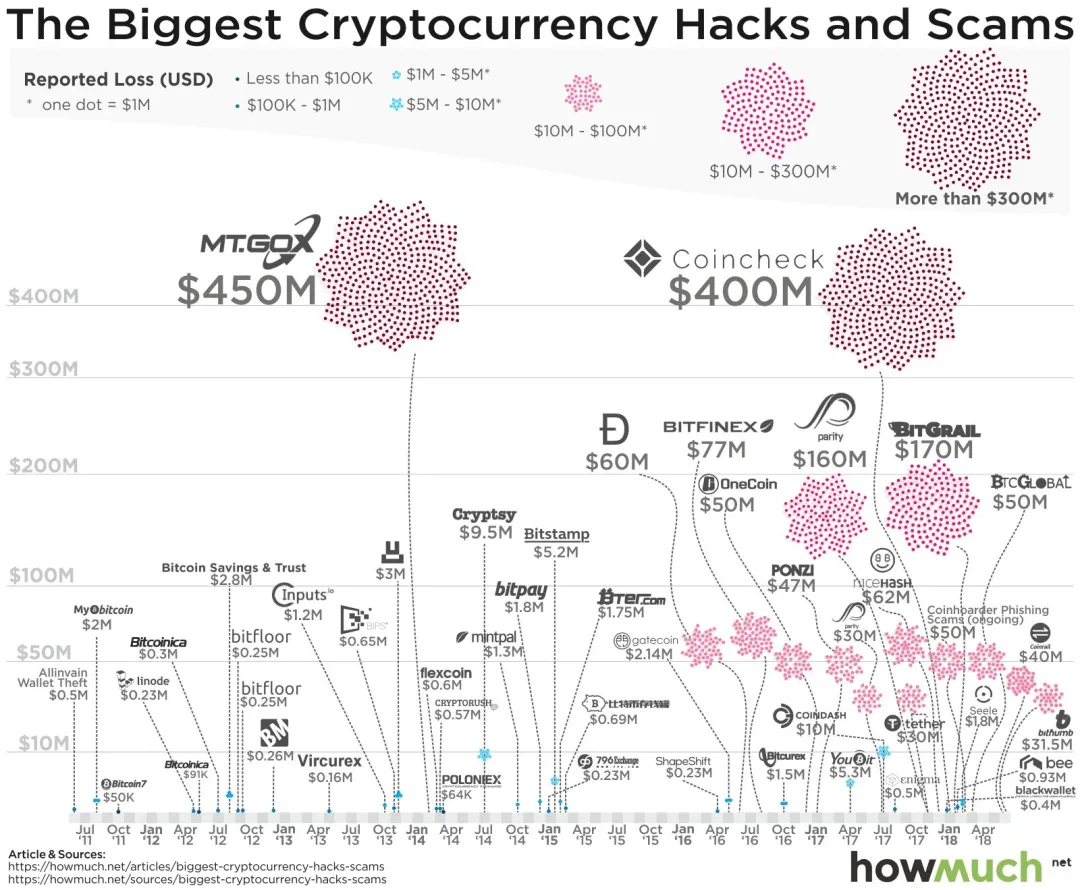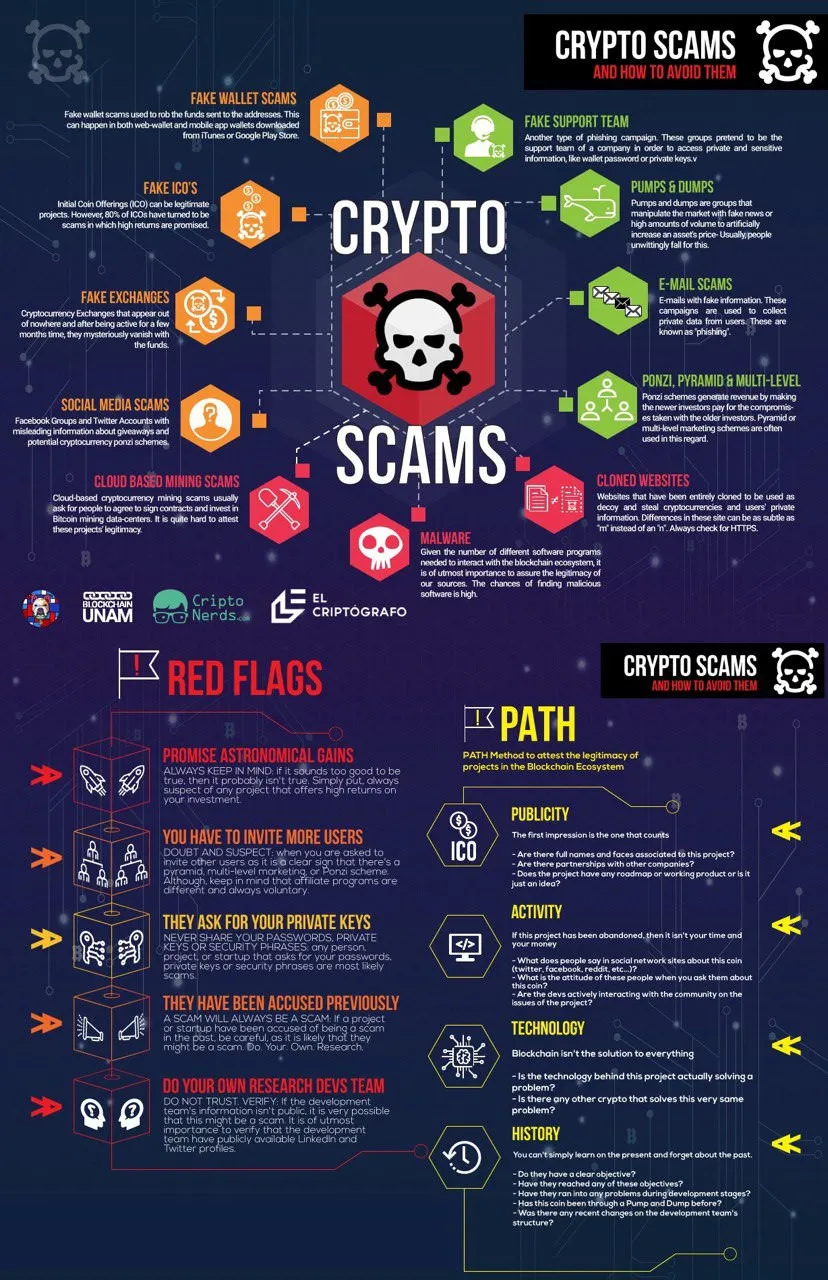- 06 April 2021
- Announcements
- 24 Comments
Don’t get Scammed! How to DYOR and understand the Risks of Initial Coin Offerings (ICOs; Crowdsales)

There’s no denying the rise in Initial Coin Offerings as a way to raise capital has been substantial in recent years. However, the explosion in popularity of ICOs has also meant there’s been a significant rise in the amount of problems and concerns associated with them.
One major concern that’s arisen recently has been that the overall quality of the preparatory stages of projects and attention to detail has seen a marked decline. In some ways, this makes life easier, with approximately 50 percent of all ICO applications declined. This ultimately reduces the overall number of published projects. However, the overall number of initial coin offerings listed online is considerable. Even when narrowing things down to specific industries, it’s easy to get lost in the heap. It’s a huge problem for a continuously growing market.

Do you still remember the SaveDroid ICO?
Perhaps more significantly are concerns of how individuals investing in Crowdsales can fall victim of fraud. A sizeable number of erroneous projects appear daily and, with the considerable rise in the popularity and usage of ICOs, fraudsters are becoming more and more sophisticated in their tactics and strategies to dupe unsuspecting investors.

© Courtesy of howmuch.net
Crafty tactics exposed
Scammers have an ever-growing arsenal of tricks at their disposal and are becoming far more daring in their execution. Some may opt to hire the expertise of a genuine agency should fraudulent projects be exposed. More daring yet, they may choose to hire the expertise of established industry experts and authorities within the community to serve as supposed advisors. While this gives the veneer of credibility to a fraudulent project, it compromises the credibility of the unsuspecting experts involved, potentially damaging their careers for life.
Other nefarious practices can include listing very real people with impressive credentials as part of their project teams, along with displaying genuine imagery and identification, yet who have no actual involvement with said project or projects. Additionally, it’s not uncommon to see citations and references from non-existent publications and media outlets listed on sites to boost credibility.
However, thanks to the vigilance of the wider community, even the most meticulous malpractice can be exposed. Sadly, no matter how quick a scheme is exposed, it can prove too late for some investors who have already parted with precious capital. Additionally, scams can continue on after initially being revealed as fraudulent, with notifications of suspect practice having been missed by investors. The best way to combat such scams is to have fake Crowdsales de-listed from platforms and an application programming interface (API). It’s encouraged that community users take an active stance in notifying platforms about suspect projects to ensure such a strategy is as effective as possible. A complete stoppage in the sharing of information is the only way to stop a fake Crowdsales from continuing to accrue victims.
Fake Crowdsales — Warning Signs
Even as fraudulent Crowdsaless become more and more sophisticated, there are key areas to focus on and several common factors that might warrant further investigation. These can include:
Team Member Identities:
- Suspect use of stock photos. Does imagery of listed team members and project personnel look like it’s been ripped from a stock image library?
- Fake links. Profiles might have social media links displayed that don’t actually link to any active profiles.
- Illustrations instead of actual photographs. It’s always suspect when an ICO opts for the former.
- Misidentified imagery. Does an ICO list experts as aligned with a project, yet feature mismatched names and photos?
- Not naming personnel. Any ICO project using images without associated names is always suspicious.
- Incomplete LinkedIn pages. Is a LinkedIn page of an apparent expert missing a photo? Another red flag.
- Narrow field of information. When searching for an assigned expert, is the ICO page the only result?
Previous Claims of a Scam:
Check online sources like Bitcointalk for previous coverage on an ICO. Have accusations of it being fraudulent already been raised?
Unsubstantiated Claims:
- Big claims of multi-level marketing and huge returns on investment sound impressive, but if there’s nothing to backup such claims, always be suspicious.
- Meagre information and broad milestones. Buzzwords make a good first impression, but if a project roadmap is looking a little thin and without actual substance, it’s likely a sign of some level of fraudulent activity.
Stolen Material and Concealment:
- Be weary if WHOIS information of a domain is concealed.
- Always express caution if logos, artwork and other marketing collateral has been lifted from elsewhere.
- Has a white paper been fully or partially lifted from another project? Another cause for concern.
Any one of the above could be an identifier of an ICO scam at work. Identifying any single one of these could be enough to warrant probing deeper with further investigation. There’s been many high-profile cases of projects duping thousands of potential investors, but the dedicated crypto-network community has consistently been able to uncover and expose these efforts. However, exposing a scam and de-listing it is only half the battle to be fought. Outside of the platform it’s been de-listed from, such a scam can continue to thrive and appropriate yet more victims on third-party platforms. Best practice dictates that once a scam has been exposed, it’s pivotal that notified platforms contact the relevant authorities and controlling bodies in order to cripple scammers completely.

© Courtesy of Imgur.com
The importance of independent research
Before agreeing to send any money to a potential ICO, it’s imperative that said investors carry out their own in-depth research before doing so. No matter how gleaming the credentials might seem, no matter how much hype has been generated around the project; cautiousness is key. It’s incredibly short-sighted to go along with superficial factors like appreciation markers, followers and the like and could cost you considerably. What’s more, your own intuition and hard-earned knowledge should never be neglected and ignored. In short, trust your gut. In the realm of ICOs, everybody can make a bad decision from time to time, but the response should not be to subsequently lay the blame on bad advice from elsewhere. Casting blame on third-party advice and essentially anonymous write-ups is not a way to combat such scams and will never work towards seriously diminishing the success of such fraudsters.
Adapting with the times
Much like scammers have readily adapted and refined their strategy, so must we in order to combat them and minimise the risks associated with ICOs. While it can certainly help reduce the overall activity of scammers, verifying projects flagged as suspicious is a reactionary action and will only chip away at the overall problem. It’s simply not an efficient way to tackle to the issue. Instead, elevating overall standards with a much wider scope is crucial. Awareness needs to be shared as broadly as possible.
How UnitedCrowd can help
UnitedCrowd is a Tokenization Provider. We tokenize existing projects and implement ICOs (Crowdsales) for our clients. In doing so we set the highest standards when it comes to quality and security. Therefore, we will only realize such Crowdsales, that stand up a strict scrutiny: The UnitedCrowd QualityCheck.
A team of professional advisors examines the business idea and company on the basis of predetermined criteria. The UC-Quality Check corresponds to a comprehensive Due Diligence.
Only those who get excellent scores will be Tokenized and awarded with the UC-Seal, as a visibly sign of their trustworthiness and good prospects.
The UC-Quality Check is uninfluenceable. To guarantee this a democratically elected panel (Board of Community) will review all rating decisions to ensure compliance with the strict standards.
When investing in an UC-implemented crowdsale, investors can trust in the project to meet the highest demands, to have excellent prospects and are effectively protected against Scam.